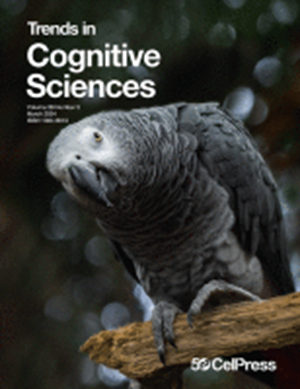Large language models (LLMs) and the institutionalization of misinformation.
IF 16.7
1区 心理学
Q1 BEHAVIORAL SCIENCES
Trends in Cognitive Sciences
Pub Date : 2024-12-01
Epub Date: 2024-10-10
DOI:10.1016/j.tics.2024.08.007
引用次数: 0
Abstract
Large language models (LLMs), such as ChatGPT, flood the Internet with true and false information, crafted and delivered with techniques that psychological science suggests will encourage people to think that information is true. What's more, as people feed this misinformation back into the Internet, emerging LLMs will adopt it and feed it back in other models. Such a scenario means we could lose access to information that helps us tell what is real from unreal - to do 'reality monitoring.' If that happens, misinformation will be the new foundation we use to plan, to make decisions, and to vote. We will lose trust in our institutions and each other.
大型语言模型(LLM)与错误信息的制度化。
大型语言模型(LLMs),如 ChatGPT,在互联网上充斥着真假信息,这些信息经过精心制作和传递,心理科学认为会鼓励人们认为这些信息是真的。更重要的是,当人们将这些错误信息反馈到互联网上时,新出现的 LLMs 就会采用这些信息,并将其反馈到其他模型中。这种情况意味着我们可能会失去获取信息的渠道,而这些信息可以帮助我们分辨什么是真实的,什么是虚幻的--进行 "现实监测"。如果出现这种情况,错误信息将成为我们规划、决策和投票的新基础。我们将失去对机构和彼此的信任。
本文章由计算机程序翻译,如有差异,请以英文原文为准。
求助全文
约1分钟内获得全文
求助全文
来源期刊

Trends in Cognitive Sciences
医学-行为科学
CiteScore
27.90
自引率
1.50%
发文量
156
审稿时长
6-12 weeks
期刊介绍:
Essential reading for those working directly in the cognitive sciences or in related specialist areas, Trends in Cognitive Sciences provides an instant overview of current thinking for scientists, students and teachers who want to keep up with the latest developments in the cognitive sciences. The journal brings together research in psychology, artificial intelligence, linguistics, philosophy, computer science and neuroscience. Trends in Cognitive Sciences provides a platform for the interaction of these disciplines and the evolution of cognitive science as an independent field of study.
 求助内容:
求助内容: 应助结果提醒方式:
应助结果提醒方式:


